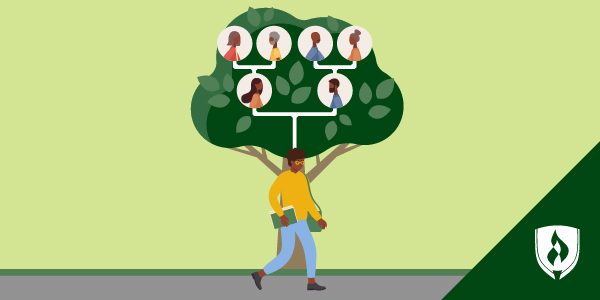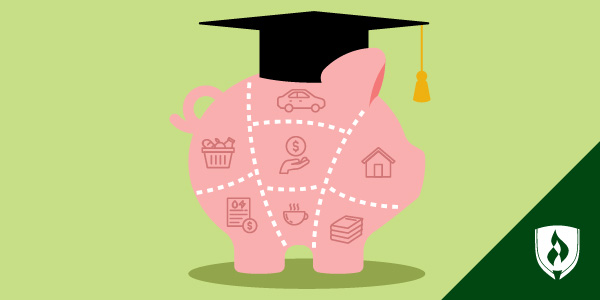
After graduating high school, you’re ready for a break. You’ve spent years hitting the books, taking tests and slogging through homework. The idea of stepping right back into the education cycle after one short summer might sound like a huge missed opportunity.
Many students consider taking a gap year between high school and college to see the world, gain new experiences or earn some money. But if college is part of your plan, how will taking a gap year affect your future? Will some time away from the classroom enhance your education or hinder it?
It would be a shame to spend a year backpacking through Europe only to discover that you’ve set yourself back on your education, financial and career goals. If the term gap year is music to your ears, take some advice from those who’ve been there and done that. We got the scoop on taking a gap year from real students who took time off before jumping into college, and we’re sharing their insights to help you make the decision that’s right for you.
What does it mean to take a gap year?
Gap year is the popular term for students who take time off to travel or work between high school graduation and starting college. Students take a gap year for many reasons. For some, it comes as a complete surprise. Shameeca Funderburk planned to join the air force and become a doctor, but lost her admission due to a knee injury and found herself in an unplanned gap year.
Other students intentionally take a gap year to gain perspective or to pursue another dream. Entrepreneur Carlota Zimmerman submitted to a Young Playwrights Festival and was swept into the world of professional theatre when she took the prize. “I hadn’t planned to take time off from college when I applied to the festival, but it ended up being one of the most productive and exciting experiences of my life,” Zimmerman says.
How can a gap year help you?
“That extra year off allowed me to get my mind ‘right’ for college. I took more rigorous courses and graduated with honors.”
Taking a gap year can be an economical and even practical choice for many students, according to Katie Schellenberg, CEO and founder of Beyond Tutoring. “Students who take gap years are more satisfied with their career post-university,” Schellenberg says, pointing out that the extra time helps many people gain perspective on what they really want from their education.
One way to get the most benefit from a gap year is to work in the career industry you’re considering pursuing in college, according to Forbes. Taking a gap year can be a great opportunity to make sure your dream career doesn’t turn out to be a nightmare. Not only can a gap year get you headed in the right career direction, it can also save money since you won’t waste any credits taking courses that aren’t necessary for your eventual career choice.
Zimmerman believes her gap year is directly responsible for her success in college and later in life. “That extra year off allowed me to get my mind ‘right’ for college. I took more rigorous courses and graduated with honors.” If you’re feeling unsure about your future career or think you could use some broader perspective about your life, taking time off between high school and college could be just the thing you need. But that doesn’t mean a gap year is the right choice for everyone.
How can a gap year hurt you?
The danger of a gap year is that it could turn into gap years. Some students who have every intention of returning to college can get sidetracked by jobs they didn’t really want or months of consuming Netflix.
Kiri Mohan loved her time backpacking through Australia and working on organic farms, but she believes the gap year is only a good idea if you have solid plans for how you will use the time. “I saw friends who just stayed home and played video games and then were worse off when they went to college, often failing out or transferring multiple times,” Mohan says.
Riihannon Dwyer says she wasted a lot of time just going with the flow and wishes she had pushed herself a little harder. “While I’m incredibly happy with my decision to take time off, I would have liked to try more things.” To ensure you benefit from a gap year, Mohan advises creating a plan at least six months prior to graduation and staying dedicated to it.
How to get the most from your gap year
“Explore!” Dwyer urges. Whether that means traveling, taking a dance class or trying your hand at carpentry, new experiences can help you discover what you love and how you work. Dwyer believes experimentation is the best way to find out what you want to do in the long run. As you make your plan for your time away from school, come up with new ideas for how to spend your time and look into taking a class that might expose you to a new passion. “A cheap, short-term class is a far better way to experiment than getting saddled with education debt,” Dwyer says.
“Make sure you do something productive that will help enhance you as a young adult,” Funderburk says. A gap year is the perfect time to decide on a college major, form some good habits and reflect on where your life is going and who you are becoming. “Take the time to reflect on your goals, have plan for college and stick to your plan.”
“Take the time to reflect on your goals, have plan for college and stick to your plan.”
If you know you are easily distracted from working towards your future, it helps to spend time with people who inspire you to achieve your goals. Funderburk advises students taking a gap year to make sure they have people in their lives who will motivate them to start college when the year is up. Find some friends who dream big and pursue their own ambitions, and you will be more likely to do the same.
RELATED ARTICLES:




